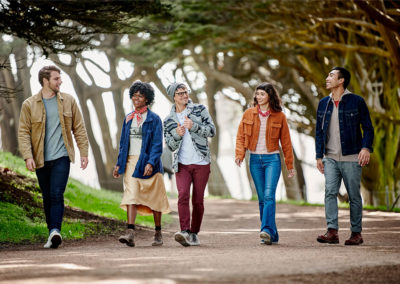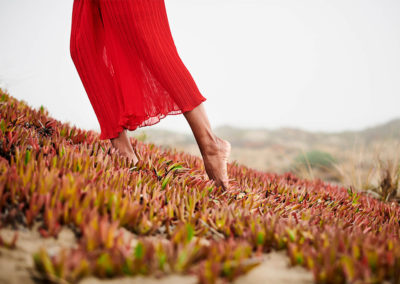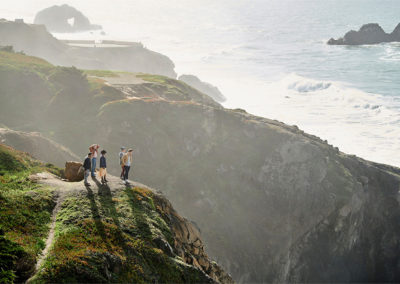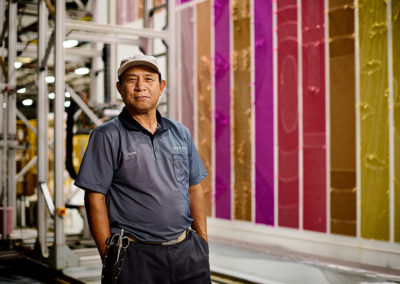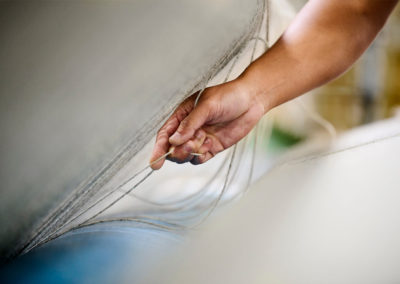In Motion
Making the leap from photo to video was easier than expected
by Jared Leeds
When photographers first started making the transition to incorporating video into their workflow, I admittedly went in kicking and screaming: “I’m a photographer, dammit!”
I was dedicated to the craft and art of making photographs with very little interest in creating motion. It took a while to realize that it was just fear of the unknown that was holding me back. Ultimately, photographers becoming directors is where the industry was headed, whether I liked it or not.
“Friends”
Early in my career, I was a photojournalist who mainly worked alone. It was a transition for me when I started shooting more elaborate projects with assistants, producers, stylists, etc. I had to learn to ask for what I wanted and to delegate. By the time I started working in video, I was used to working with a team. That experience translated well to directing. However, the most important skill I had built over the years was my ability to make people from many walks of life feel comfortable in front of the camera. It takes empathy, clear communication, and the ability to pivot when the unexpected happens.
“Merida Studio”
Another skill that helped the transition was the visual literacy I developed as a photographer. My confidence in framing and composing a photograph, and piecing together a narrative visually, had a direct influence on how I shot motion. However, film also influenced how I composed my photography. It’s been a natural progression in that sense.
With all that said, the learning curve was steep, and I still continue to learn every day. There are many more layers with video that you have to think about. From sound design and editing, to camera movement, and learning the gear itself, it’s been a lot to take in. The transition from a feeling of complete confidence in my craft to being a newbie again was unsettling.
“Families”
I’ve come to really appreciate the depth of layered storytelling that video offers, that photography on its own may not. With video, the creator is often able to tell a more complete story over time. Sound design, music, coloring, and editing create multiple layers that lead to a more fleshed-out, developed mood and narrative. With that said, it is a slower process than photography. I’ve had to adjust to not being finished with a project for weeks, or sometimes months. It has gotten to the point where half of my personal work is now video. Photography, however, will always be my first love and the tool I reach for first as I observe my world.
Share this article

Jared Leeds is a portrait, lifestyle and documentary photographer and director. He has worked for a range of editorial and commercial clients including Blue Cross Blue Shield, CVS, Fidelity, Inc Magazine, Men’s Health, The New York Times and UPS. Based in Boston, he collaborates with creatives all over the world on large and small projects. When not on set or shooting personal work, you’ll likely find him in the woods on his mountain bike or hacking away at his guitar.


